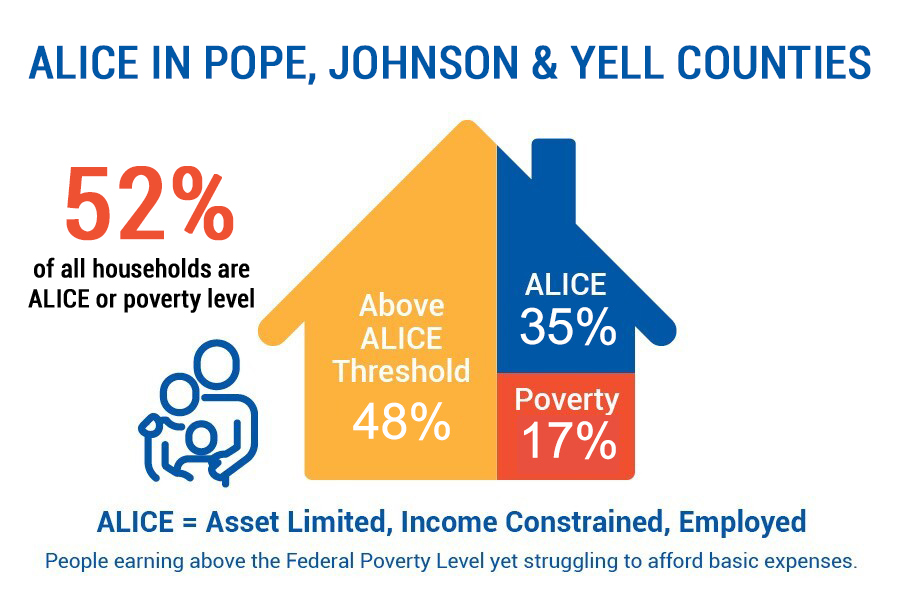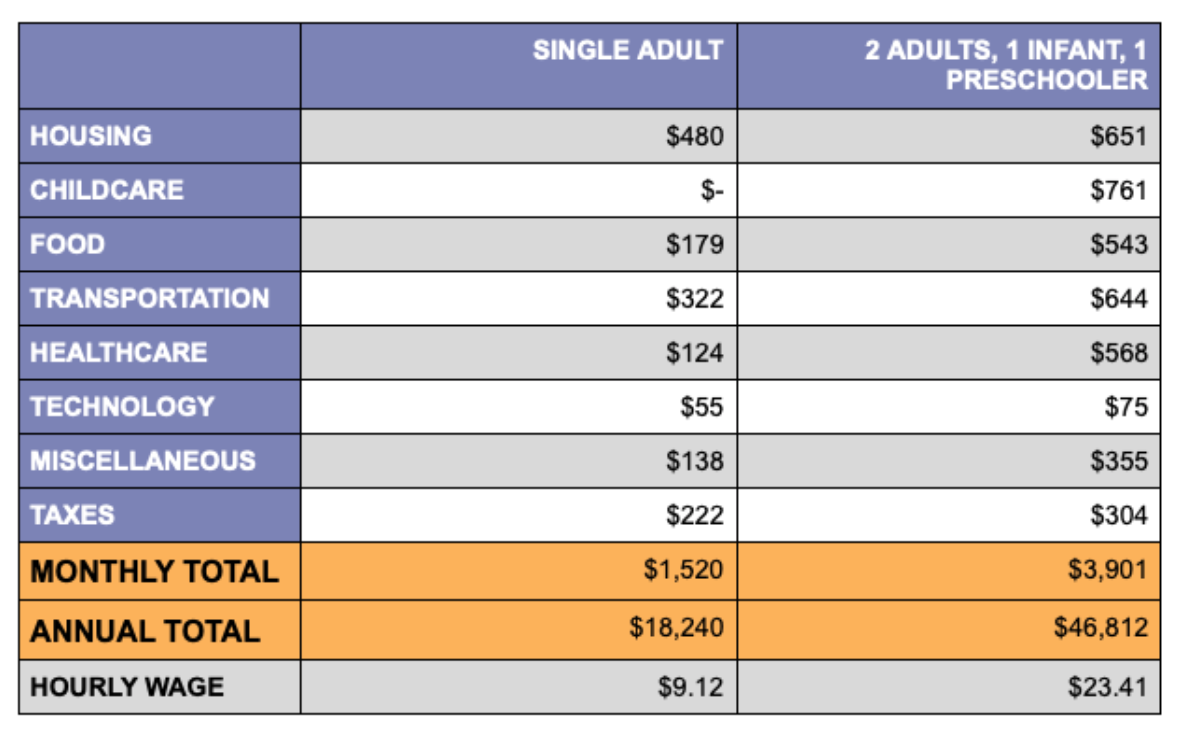
SURVIVING IS NOT THRIVING
ALICE, encompassing early education workers, laborers and movers, home health aides, heavy truck drivers, store clerks, repair workers, service industry workers, and more are often the most essential workers in our community yet they are among the most financially vulnerable. They live paycheck to paycheck, forced to make impossible choices: pay rent or buy food, receive medical care or pay for childcare, pay utility bills, or put gas in the car.
These tough decisions, made under financial strain, not only impact their immediate well-being, but also have long-term consequences for their mental health, households, and communities.
WE ALL KNOW ALICE
We use ALICE measures to highlight challenges ALICE households face to inspire action and generate innovative solutions that promote economic and social mobility. These programs and practices improve access to affordable housing, education, healthy food, transportation, workforce training, and more. UNITED FOR ALICE aims to turn data into action by bringing financial stability to ALICE families in the River Valley.

ALICE Household Budgets 2022
Traditional economic measures underestimate the actual cost of basics. To better capture the reality of household costs, United For ALICE provides budgets that are tailored by location and household type.
These budgets include housing, child care, food, transportation, health care, and technology, plus taxes and a 10% miscellaneous category.
The ALICE Household Survival Budget
The Household Survival Budget reflects the minimum cost to live and work in the current economy. This budget is the basis for determining whether households are above or below the ALICE Threshold by county.

Because the problems facing ALICE families are interconnected, effective solutions must be, too. Working toward these solutions will require innovation and vision, to both recognize local factors and address as many areas of struggle as possible. With this clear documentation of how the issues are interconnected, community stakeholders — family, friends, nonprofits, businesses, and the government — can start to work together to build solutions that are right for their neighborhoods, towns, cities, counties, and states. Ultimately, if ALICE households can become financially stable, state economies across the country will be stronger and communities more vibrant, improving life not just for ALICE, but for everyone.
For more information about ALICE in the River Valley and ALICE in Arkansas, visit UNITED FOR ALICE.
WHAT CAN YOU DO?
You can raise awareness of ALICE by introducing them to your friends and family by sharing this page.
You can help ALICE by giving to United Way.
